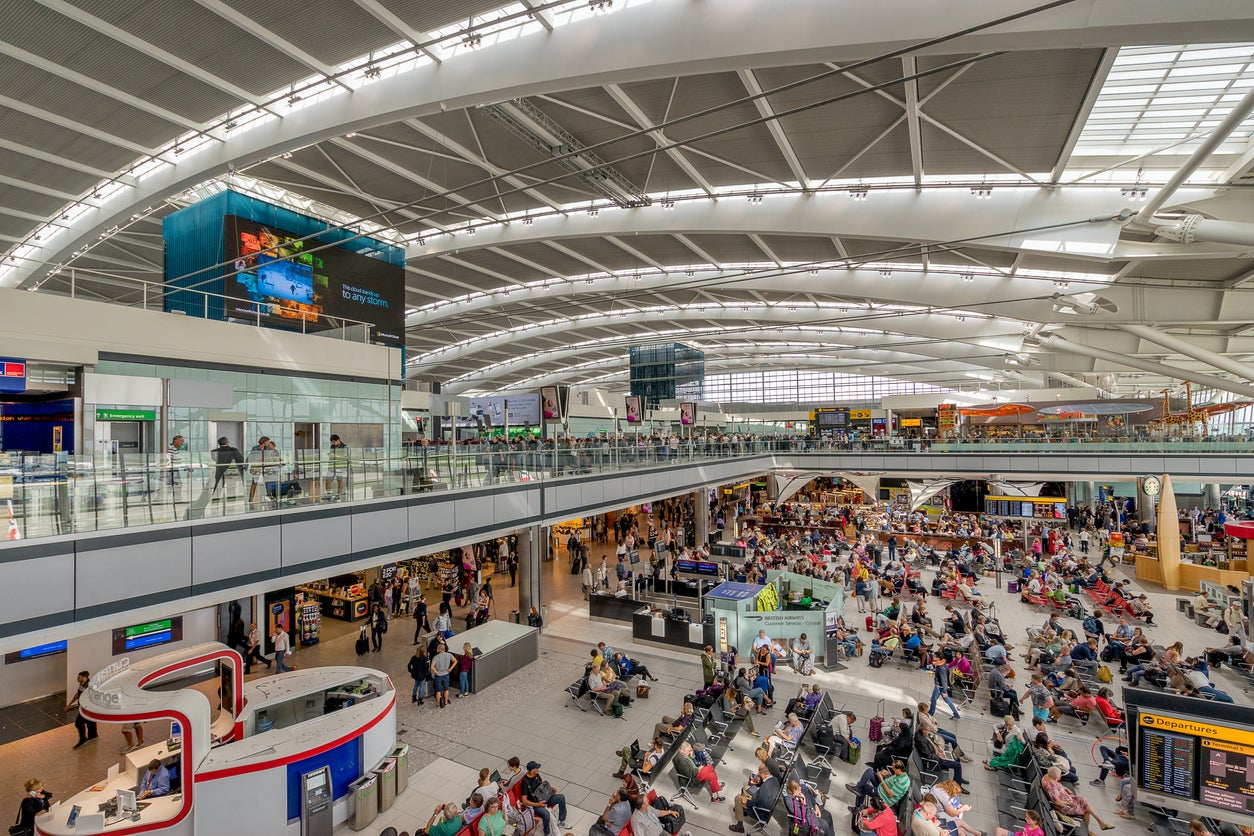Will car rental hikes leave us stranded in the Algarve?
Simon Calder answers your questions on public transport in southern Portugal, boarding mistakes, September getaways, and handing over your luggage early


Q A couple of weeks ago you wrote about the extremely high cost of hiring a car in the US. It’s looking very expensive this month in the Algarve, too. How reasonable is public transport? We will be staying in Lagos, which is a fair way west of Faro airport, where we arrive.
Kay B
A The chronic shortage of rental vehicles in leading holiday destinations may actually turn out to have a silver lining: by revealing to holidaymakers that in many locations it is perfectly possible to survive without a car. That certainly applies in the Algarve, which I have explored happily by train and bus.
From Faro airport, frequent buses (number 14 or 16) run to the city for a couple of euros. They terminate close to the railway station, which is the main hub for trains in the Algarve.
The fact that your accommodation in Lagos is excellent news. This beautiful and historic town is at the western extreme of the coastal railway that runs from Faro and many other Algarve towns. (The line actually begins in the east at Vila Real on the Spanish border.)
Trains on the coastal run are low cost – just €7.50 (£6.40) from Faro to Lagos – and fairly frequent. They are not noted for their turn of speed; the 50-mile journey takes around one hour and 40 minutes. To travel faster, coaches are generally faster than trains if they use the motorway that parallels the coast. Some of the bus stations are unhelpfully located: at Albufeira, for example, the terminal rodoviário (as it is known) is a long way from the town and the sea.
For trips out of town – for example, from Lagos to the town of Sagres – local buses fill in the gaps, while taxis are generally cheap and reliable.
Having tried public transport, you may decide it is the way to go in future. Given Portugal’s still depressingly high number of road accidents, you will certainly be safer.

Q My wife was recently denied boarding when flying to the UK from Germany with her Irish passport card. She bought a ticket on a different airline and flew on the same day, but to a different airport. She had to take a taxi home and the next day go and retrieve her car. A guest that was supposed to stay with us had to book a hotel for the night because she was so late. Does the airline that denied her boarding have to pay the additional costs of retrieving the car and our guest’s hotel stay?
Herman
A Here’s the background to this tricky situation. Ireland has an excellent alternative to a passport: the passport card, which serves approximately as an ID card does for European Union nationals in the EU, the wider Schengen area and some other countries: it allows easy access without the need for a paper passport.
In October 2021, the “Brexit promise” to ban European Union citizens from travelling to the UK with a national ID card was introduced. This very clearly does not include Irish citizens, because (a) there is no national ID card and (b) Irish citizens are able freely to enter the United Kingdom. The test for wrongful denied boarding under European air passengers’ rights rules is: was the passenger properly documented for travel to the destination country? It appears that your wife met this condition. If so, this is most regrettable – and yet another example of airline staff wrongly denying passengers boarding.
Assuming she did, then the airline must pay £220 in compensation under the passengers’ rights rules, in addition to refunding the cost of the replacement flight. The taxi is trickier. A claim might be possible if she had gone straight to the original airport to retrieve the car, when no rail alternative was available. But since the journey was to home, the legal position is cloudier and a claim easier to bat away.
It is annoying and expensive that the guest needed to find a hotel, but “consequential losses” of that sort are most unlikely to be met.

Q I believe I heard you say that Monday 5 September is the earliest that anyone should rationally aim to travel from the UK. If this is correct, are you following your advice and travelling then – and where?
Fiona McN
A Anyone planning to fly away in July and August can be forgiven for feeling anxious. The overstretched aviation industry is seeing far more flight cancellations than any previous summer, occasionally at the last minute, due to a chronic shortage of expert staff across the many essential specialised roles in aviation. Threatened industrial action on a number of airlines is adding to the apprehension.
Yet the vast majority of travellers are getting away as planned, and my prediction is that only a tiny percentage will encounter serious disruption. More of a concern for me is that though at average prices far higher than in pre-pandemic times.
Many families are understandably desperate to make up for lost sunshine, and there is a mismatch between this surge in pent-up demand and the dwindling supply of space on board flights.
British Airways alone is taking at least 2.8 million seats out of the summer season, and easyJet is also axing departures. The remaining space is selling at premium rates.
Fares are especially high outbound to Mediterranean destinations (plus Portugal and the Canary Islands) from Friday 22 July until Sunday 7 August, and inbound from Saturday 20 August until Monday 4 September.
Hotel rooms and rental cars are also scarce commodities, with commensurate price hikes and patches of complete unavailability.
Yet there is a clear “cliff-edge” at the end of the main school summer holidays: on a wide range of UK-Med flights, fares in late July and August are three times higher than in September. Accommodation and car hire are also far cheaper once the school holidays end.
I am indeed going abroad during that week, flying on Ryanair from London Stansted to Lourdes in the foothills of the French Pyrenees, for which I have paid £50 return. Past experience indicates the flights and the weather should be fine and the hiking excellent, but time will tell.

Q Given the challenges being faced by airports and airlines currently, would you recommend passengers using the night-before bag drop options? I’m thinking of Heathrow and British Airways in particular.
Esther B
A If you must check in luggage for your journey, and it is convenient for you to drop it off the night before, I certainly recommend BA’s “Overnight Bag Drop” – also widely known as “twilight check-in”.
First, though, as you are flying on British Airways, I must remind you that the airline has the most generous cabin-baggage allowance of any UK carrier: two bags weighing 23 kg each. The larger can be as much as 56 x 45 x 25cm (a volume of 63 litres), the smaller 40 x 30 x 15cm (18 litres). If you decide to take this route, remember to adhere strictly to the liquids and sharps rules, otherwise you’ll gum up the security search – to the detriment of you and everyone behind in the queue.
The Overnight Bag Drop is in operation at Heathrow Terminal 5, home of BA’s main operation, and Gatwick South Terminal. It is open to anyone with a flight scheduled before 1pm next day. The idea is that you can take advantage of much thinner crowds in the evenings at check-in, and help the airline by reducing queues in the morning. You simply turn up between 6pm and 9pm, present your passport and booking reference and check in as normal. You will be given a boarding pass with the baggage tags attached. Then, instead of marching straight through the security check, you return to your airport hotel (if you have one) or home (if you live nearby).
Next morning, you have fewer tasks, meaning less stress and uncertainty. All you need do is clear security – which in my experience is a straightforward business at both Heathrow and Gatwick – and find the departure gate.
Other airlines offer a similar facility, with some of them charging a fee for the privilege. Given that Overnight Bag Drop helps the airline manage its scarce resources, I hope that it becomes a zero-charge option for other airline and airport combinations.
Email your questions to s@hols.tv or tweet @simoncalder




Join our commenting forum
Join thought-provoking conversations, follow other Independent readers and see their replies
5Comments